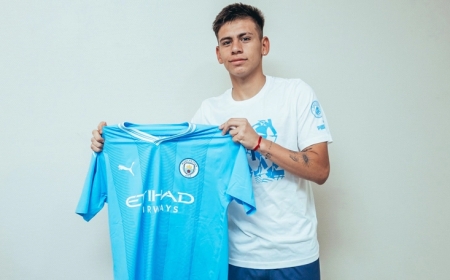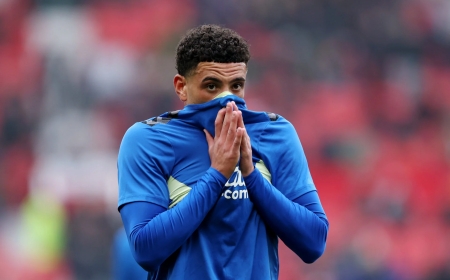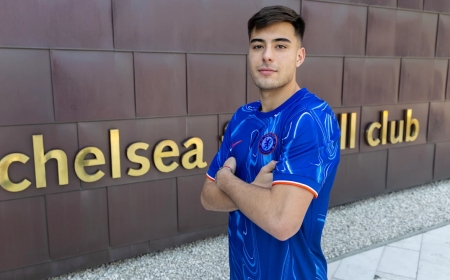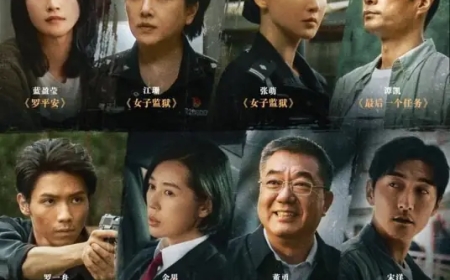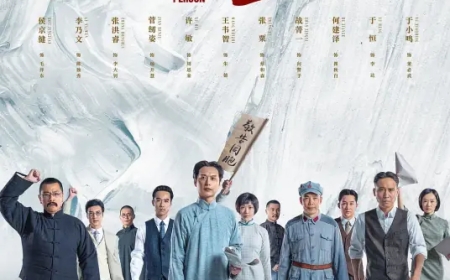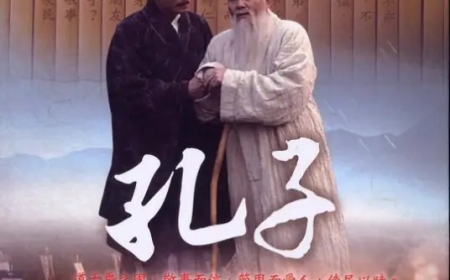The Great Dao
1.
In the spring of 1924, Mao Zedong went to Shanghai to work in the Shanghai Executive Department of the Kuomintang, and made strategic plans in the workers' movement. However, the Communist Party members were excluded by the right-wing forces of the Kuomintang, and frictions and struggles continued. Mao Zedong returned to Hunan to recuperate and continued to seek the revolutionary path. The "April 12" counter-revolutionary coup led to the split between the Kuomintang and the Communist Party. Chiang Kai-shek frantically encircled and suppressed the Soviet areas. Mao Zedong insisted on in-depth investigations in the countryside and wrote many immortal articles such as " Xunwu Investigation ". He conducted great explorations and practices in governing the country in the Soviet areas, promoted the economic development of the Soviet areas, established the National Bank, and effectively cooperated with the anti-encirclement and suppression struggle. However, the left-leaning errors within the party caused major setbacks. Many revolutionaries sacrificed their lives for the red cause, and the Red Army was forced to embark on the Long March. In January 1935, the Zunyi Conference was successfully held, and the Chinese revolution ushered in a great historical turning point. Since then, the Communist Party of China has followed the correct political direction, stood at the forefront of the historical torrent, and won a great victory..
Episode 1
In Yeping Village, Ruijin, Mao Zedong helped the villager Xu Apo to open a skylight in her home, and promised to help her find a good doctor to cure her eye disease. Xu Apo was very moved and grateful. Mao Zedong told Xu Apo that the Communist Party was to bring light to the working people across the country. The First Soviet Congress was successfully held, and Mao Zedong was elected Chairman of the Provisional Central Government of the Chinese Soviet Republic. At the closing meeting, Mao Zedong delivered a work report, and the delegates reviewed and voted on a series of legal documents such as the "Outline of the Soviet Constitution" in turn. At night, a grand lantern party was held on the Red Army Square. People gathered together with various colored lanterns such as sickles, axes, and five-pointed stars, excitedly celebrating the establishment of the Chinese Soviet Republic. During the party, there were fireworks, gongs and drums, and it was very lively. Mao Zedong and others also held lanterns to join the people's carnival. The Ningdu Uprising was victorious. The 26th Route Army of the Kuomintang, led by Zhao Bosheng, Dong Zhentang, and Ji Zhentong, revolted and surrendered to Ruijin, and was warmly welcomed by Mao Zedong, Zhu De and other Communists. The three anti-"encirclement and suppression" campaigns were victorious, the Chinese Soviet government was established, and Japan invaded the three northeastern provinces. Bo Gu believed that the situation was very good, and entrusted Zhou Enlai in Shanghai to rush to the Central Soviet Area to supervise the Soviet Area Central Bureau to implement the "offensive line". Zhou Enlai accepted the commission. Under Mao Zedong's instructions, Xu Teli solved the problem of the child bride status of Xu Xiuxiu, the granddaughter of Grandma Xu, which had troubled her for a long time. Xu Teli realized that marriage legislation could not be delayed.
Episode 2
At the end of December 1931, Zhou Enlai came to Ruijin and met with Mao Zedong, who was leading farming experts to guide spring plowing. After parting many years ago, the two had not met for a long time, but they had already known each other for a long time. Zhou Enlai came to the Central Bureau of the Soviet Area and met with Ren Bishi, Wang Jiaxiang, Xiang Ying and other comrades of the Central Bureau of the Soviet Area. Everyone happily reminisced about the past and talked about the situation. Finally, Zhou Enlai announced the instructions of the temporary central government to attack big cities. Everyone agreed and was excited. In the evening, Zhou Enlai personally visited Zhu De, and the two hugged each other warmly and were very excited. Zhou Enlai asked Zhu De for his views on attacking big cities. Zhu De frankly expressed his opinion that the enemy was strong and we were weak, and now was not the time to attack big cities. Zhou Enlai said that although the Central Committee agreed not to attack Nanchang, Changsha and other big cities for the time being, it was ready to choose one of Ganzhou, Fuzhou and Ji'an to attack, especially Ganzhou. After taking it, the Central Committee was ready to move its office to a big city. After hearing this, Zhu De bluntly objected and said that even if he agreed, Mao Zedong would not agree. After understanding everyone's attitude, Zhou Enlai sent a report to the Central Bureau of the Soviet Area suggesting "postponing the attack on large cities". In order to strengthen the economic blockade of the Central Soviet Area, the KMT spy chief Xu Enzeng sent his capable general Liu Zhicai to Ganzhou to personally carry out the blockade mission. Regarding whether to attack Ganzhou, the Central Bureau of the Communist Party of China in the Soviet Area organized a meeting, at which Mao Zedong still insisted on opposing the attack on Ganzhou and other central cities.
Episode 3
In order to solve the financial problems of the new regime, Mao Zemin, the newly appointed president of the National Bank, came to Tieshanlong Tungsten Mine to check the operation of the mine. Seeing the abandoned state of the mine, Mao Zemin was not discouraged. He took out the investigation report written by Mao Zedong when he went to the tungsten mine to encourage Liu Yishun, the former secretary of the mining area. Mao Zemin's arrival brought confidence to the mining area. Mao Zemin recruited talents for the National Bank and rushed to Changting to borrow financial expert Cao Juru from Ruan Shan, the president of the Minxi National Bank. Although Ruan Shan was reluctant, he finally agreed to give up for the overall situation of Soviet finance. Mao Zedong went down to the river to catch fish in person despite the cold weather, and asked He Zizhen to make tofu soup. He personally brought it to the canteen of the office, trying to use the fish soup to persuade the comrades of the Central Bureau of the Soviet Area to agree to his plan to delay or even cancel the attack on Ganzhou, but the result was a soft nail. Mao Zedong's last effort also failed. Zhou Enlai personally went to Zhu De and earnestly persuaded him to support the decision to attack Ganzhou. Zhu De recalled the revolutionary process of knowing Zhou Enlai and understood the difficulties of Zhou Enlai as the secretary of the Central Bureau of the Soviet Area. In the end, he tacitly agreed to Zhou Enlai's request. Mao Zemin had just solved the quality problem of coinage at the mint when he received the news that Huang Yaguang was going to be executed. Huang Yaguang was a rare talent in designing banknotes, and Mao Zemin had always wanted to invite him to design banknotes for the National Bank.
Episode 4
Mao Zemin and Qian Xijun came to Tingzhou to raise funds and got the help of Ruan Shan. With the help of Ruan Shan, president of Fujian Industrial and Agricultural Bank, they called together local wealthy businessmen and capitalists, hoping that they could borrow money to help. However, even if Mao Zemin was willing to write an IOU and use the reputation of the Red Army as a guarantee to repay the principal and interest, most landlords and wealthy businessmen were unwilling to lend money because of their distrust of the Red Army. Finally, Chairman Chen, a red capitalist and shipyard owner, arrived in time. He had met Mao Zemin and trusted Mao Zemin. Under his leadership, everyone generously donated money. The organization arranged for Mao Zedong to go to Donghua Mountain outside Ruijin to recuperate. Before leaving, Mao Zedong went to visit Grandma Xu on purpose. Seeing that Grandma Mao's bedding was given to her two grandsons on the front line, Mao Zedong immediately gave his military bedding to Grandma Xu. The siege of Ganzhou officially started, but it was not smooth at the beginning. Peng Dehuai ordered to strengthen the artillery. Mao Zedong was worried about the war on Donghua Mountain, and he went down the mountain early in the morning to Tingzhou Arsenal to supervise production. Mao Zedong instructed the Fujian Provincial Committee to do a good job in supporting the front, and went to the Gospel Hospital to ask Fu Lianxun to go to Ruijin to treat Grandma Xu's eye disease when it was convenient. Tieshanlong Tungsten Mine initially resumed production, and the China Tungsten Mine Corporation was officially established. Mao Zemin transferred his old partner Hu Kegong from Shanghai to serve as general manager, responsible for the management and operation of the tungsten mine.
Episode 5
As soon as the National Bank opened, various departments came to withdraw money. In addition, the front line was in urgent need of military pay, and the little deposits that the bank had at the opening were about to be withdrawn. The Kuomintang spread rumors in Shanghai newspapers that "Wu Hao had left the party." In order to clear Zhou Enlai's name, Mao Zedong issued a clarification statement as the Chairman of the Provisional Central Government of the Chinese Soviet Republic. This touched Zhou Enlai, who was on the front line, and also allowed other comrades to see Mao Zedong's mind and bearing. Xu Ajin, the little grandson of Grandma Xu, was playful and skipped classes to come to Donghua Mountain to see Mao Zedong. Mao Zedong personally sent him back to school and ran into the elementary school principal, Principal Chen, who insisted on resigning and returning home because of family financial reasons, despite Xu Teli and the children's retention. Mao Zedong thought of the education problem of the entire Soviet area and told Xu Teli to strengthen the education work in the Soviet area, increase the treatment of educators, and not to make education miserable.
Episode 6
He Shuheng and Deng Xiaoping came to Donghua Mountain to report to Mao Zedong about the corruption case of Xie Busheng, the chairman of the township Soviet Union. Mao Zedong was furious and immediately instructed the two to investigate thoroughly and fight against corruption resolutely. The battle in the front suffered setbacks, and more than 2,000 Red Army soldiers were killed and wounded. Huang Kecheng persuaded Peng Dehuai to give up the siege, but was scolded by Peng Dehuai. At this time, the enemy reinforcements arrived one after another, and the situation was extremely critical. Should we withdraw the siege? The Central Bureau of the Soviet Area debated and discussed countermeasures, and finally agreed to let Zhu De and Wang Jiaxiang rush to the front to understand the situation and make a decision on the next step. Part of the enemy reinforcements had entered Ganzhou City, and Peng Dehuai personally rushed to the front and was shocked by the tragic situation on the front. In front of Zhu De and Wang Jiaxiang, Peng Dehuai felt deeply guilty. Zhu De proposed to ask Mao Zedong to come out of the mountain to save the crisis, and Wang Jiaxiang and Peng Dehuai agreed. After receiving Zhu De's telegram from the front, the Central Bureau of the Soviet Area agreed to withdraw the siege after discussion, and asked Xiang Ying to go to Donghua Mountain to ask Mao Zedong to come down the mountain.
Episode 7
At the meeting, some people advocated continuing to attack Ganzhou, believing that the "offensive line" was not wrong, but the tactics were wrong. Mao Zedong once again stated the pros and cons, severely criticized the mistake of attacking Ganzhou, and suggested that the army should develop in the southeast direction where the enemy's strength was weak. Some comrades agreed not to attack Ganzhou, but they must still implement the offensive line of the Central Committee. After the meeting, Wang Jiaxiang found Mao Zedong and frankly told him that he was wrong before, and expressed his increasing disagreement with the offensive line of the Central Committee. Wang Jiaxiang now agrees with Mao Zedong's idea that he has no right to speak without investigation, and he also admires Mao Zedong's courage to stick to the correct opinion. Mao Zedong appreciated Wang Jiaxiang's frankness and sincerity. The two of them had a heart-to-heart talk, and they could not help but reach a consensus on the position of opposing the offensive line.
Episode 8
Mao Zedong led the Eastern Route Army to attack Zhangzhou. In Changting, he went to Luo Ming, secretary of the Fujian Provincial Party Committee, to learn about the situation in Zhangzhou. Luo Ming asked Mao Zedong for advice on writing articles. Mao Zedong told Luo Ming that as long as he did not engage in fraud and official documents and focused on investigation and research, he could write good articles. Remember, anything false is not a good article! After that, Mao Zedong conducted investigations and research in Fujian. Accompanied by Zhang Dingcheng and other comrades from Fujian, he visited farmers and explained to the villagers the doubts and problems that arose in the land distribution. Mao Zedong and Lin Biao led the Eastern Route Army to capture Longyan. Zhou Enlai and Zhu De were very happy when they heard the news.
Episode 9
Counterfeit money was found in large areas in the Soviet area. Mao Zemin reported the situation to Xiang Ying and other comrades of the Soviet Central Bureau. After research and judgment, everyone determined that it was the work of enemy agents. At the same time, Gu Bo found clues about the den where enemy agents made counterfeit money in Huichang County. Deng Fa, director of the National Political Bureau, sent Qian Zhuangfei with Zheng Hong and other security fighters to Huichang County to assist Gu Bo in discussing strategies to eliminate enemy agents. Gu Bo broke into the enemy's lair through acquaintances, and finally cooperated with Qian Zhuangfei, Zheng Hong and others to wipe out the enemy's lair. They followed the clues and destroyed their transfer station in Huichang and their secret den in Ruijin, and captured the hidden enemy agent Li Aguang.
Episode 10
The Red Army entered Zhangzhou City. Under Mao Zedong's request, the Red Army maintained order and did not harm the people. Mao Zedong inspected the people's sentiments in Zhangzhou and warned the Red Army to pay attention to discipline and protect merchants. Afterwards, accompanied by Zeng Zhi, he went to a central library to look for books and packed up some Marxist-Leninist works such as "Left-Wing Infantile Disorder". Xu Teli was entrusted by Mao Zedong to come to Zhangzhou to be responsible for the education of captured soldiers. Mao Zedong reminisced with Xu Teli and talked about the policy of preferential treatment for prisoners determined by the Red Army under Mao Zedong's guidance. Xiuxiu and Qian Xijun led the propaganda team to the streets of Zhangzhou to publicize the revolutionary policies of the Red Army to the citizens of Zhangzhou.
Episode 11
Mao Zemin led the bank staff to the streets to collect funds from merchants. He taught everyone in the shoe store that the Red Army's fundraising was voluntary and could not be levied. Mao Zemin's words and deeds moved the owner of the shoe store, who changed his prejudice against the Red Army and voluntarily donated money to support the Red Army. Mao Zedong conducted research in the market and corrected the wrong behavior of the Red Army soldiers forcing wealthy businessmen to donate money. Mao Zedong apologized to the wealthy businessmen on the street and explained the Red Army's fundraising policy. Gao Jiecheng's uncle, the banker Gao Jianguo, was moved by the Red Army's clear discipline and dedication to the people, and took the initiative to bring local businessmen to the fundraising committee to donate money to the Red Army.
Episode 12
During the more than 40 days in Zhangzhou, the Red Army raised a total of one million yuan in funds, as well as a large amount of supplies, and even more delightful were two airplanes. How to deal with the one million silver dollars is a very important issue. At Mao Zedong's suggestion, Mao Zemin divided the one million silver dollars raised in Zhangzhou into two, half of which was placed in the National Bank and the other half was used to build a secret vault. Mao Zemin couldn't find a suitable place to build a secret vault, so Mao Zedong gave him an excellent place - Lannilong, Shicheng County, which was far away from the main road, hidden and convenient. Mao Zemin, escorted by Zheng Hong and other security bureau soldiers, rushed all the way to Shicheng Lannikeng. When passing through western Fujian, he not only repaid all the loans he had previously made to merchants in western Fujian, but also compensated a large amount of interest. The merchants admired Mao Zemin and the Communist Party for their promises and trustworthiness. Under the leadership of the red businessman Hua Jiageng, they not only refused to collect interest but also tore up the IOUs and donated all the funds to the Red Army again.
Episode 13
Thanks to the efforts of Mao Zemin, Huang Yaguang and others, the banknotes of the National Bank finally began to be officially issued and circulated. Under the leadership of Xu Teli, the new "Marriage Law" was also promulgated. Wang Jiaxiang talked to Zhou Enlai and talked about his change from disapproval to approval of Mao Zedong at the beginning, and believed that Mao Zedong's opposition to the offensive line was correct. Zhu De also found Zhou Enlai and believed that Mao Zedong's opinion was very correct and hoped to restore Mao Zedong's position as the general political commissar. Zhou Enlai then proposed to the Central Bureau of the Soviet Area that "Mao should be the general political commissar." The leaders in Ruijin disagreed and wanted to give this position to Zhou Enlai. Zhou Enlai found various reasons to speak for Mao and pleaded: In this way, "the chairman of the government will have nothing to do" and "it is really inconvenient."
Episode 14
From October 3 to 8, 1932, Ren Bishi, Xiang Ying, Gu Zuolin, and Deng Fa, comrades of the Central Bureau of the Soviet Area, came to the front and held a meeting of the Central Bureau of the Communist Party of China in Xiaoyuan, Ningdu, which was known as the "Ningdu Meeting". The meeting cancelled Mao Zedong's military command and approved Mao Zedong to temporarily take sick leave to return to the rear and go to the front when necessary. After the meeting, Mao Zedong left in the heavy rain. Wang Jiaxiang and Zhou Enlai came to see him off, and the three of them said goodbye in silence in the heavy rain. Tingzhou Gospel Hospital, Mao Zedong came here to recuperate, and his wife He Zizhen had just given birth. The birth of the child Maomao brought a little comfort to Mao Zedong, who was at a low point. Mao Zedong had a rare warm family life, and he took care of He Zizhen in every possible way. At the Gospel Hospital, Mao Zedong talked with Luo Ming, secretary of the Fujian Provincial Party Committee, who came to recuperate with him, and encouraged him to adhere to the mass line and persist in carrying out guerrilla warfare after he recovered.
Episode 15
Mao Zemin and Deng Zihui came to the Gospel Hospital to report to Mao Zedong on the recent financial work. The bank training class has been opened, the production and sales of tungsten ore are also good, and the Soviet banknotes are smoothly issued and circulated. Just when the three were happy, news of the plague in Huichang came. Mao Zedong humbly asked Fu Lianxun for advice on how to prevent and treat the plague. Upon learning the situation, Fu Lianxun immediately decided to lead a team to Huichang to support the fight against the epidemic. At the same time, Fu Lianxun also applied to Mao Zedong to join the Red Army. Mao Zedong instructed Luo Ming to prepare anti-epidemic materials and transport them to Huichang to support Xiaoping's anti-epidemic work..
Episode 16
Bo Gu arrived in Ruijin and was warmly welcomed by the comrades in Ruijin. Mao Zedong was overwhelmed with grief when he learned that Zhao Bosheng had died on the front line. He Zizhen recalled the hard times in Jinggang Mountain to comfort Mao Zedong. Knowing that Comrade Bo Gu of the Provisional Central Committee had arrived in Ruijin, Zhou Enlai, Zhu De and Wang Jiaxiang, who were on the front line, decided to jointly appeal to the Central Committee to let Comrade Zedong return to Ruijin to continue to preside over the government work. Bo Gu inspected the Central Mint and was received by Mao Zemin. Bo Gu urged the Central Mint and the Banknote Printing Factory to increase the production of coins and banknotes, give priority to ensuring the front-line combat readiness and material supply, and prepare for the Central Committee's offensive route to attack large cities.
Episode 17
In order to spread the knowledge of identifying counterfeit banknotes, several students from the Red Army University accidentally cut down the bamboo of a fellow villager. They were criticized and educated by Mao Zedong. Mao Zedong led the students to apologize to the fellow villager and compensated the fellow villager for his losses according to the market price. Mao Zedong taught the students that the private property of the people is sacred and inviolable. Today, a flag made of bamboo was made for publicity. We cannot cut down the flag of our Red Army in the hearts of the people because of these. The students were deeply educated and realized their mistakes.
Episode 18
The counterfeit money case made progress under Qian Zhuangfei's personal investigation. The case also involved Grandma Xu's grandson A Biao. Qian Zhuangfei realized that A Biao was just instigated by someone. After some interrogation, A Biao revealed the person behind the scenes - A Fa, the boss of Dafa Commercial Bank. Qian Zhuangfei led his men to Dafa Commercial Bank and successfully captured A Fa. However, before Qian Zhuangfei could interrogate him in detail, the real mastermind, Tang Renli, an enemy spy who had been lurking in the Soviet area for a long time, was accidentally killed. The person who killed him was another enemy spy lurking in the Soviet area, Yu Yi, the secretary of Zhao Baocheng, the director of the General Affairs Department.
Episode 19
Although A Biao was not the principal offender, he also had to bear legal responsibility. Worried that A Biao would be sentenced to death, Grandma Xu personally went to Mao Zedong's house to plead for mercy. Mao Zedong comforted Grandma Xu, saying that Soviet law was fair and just, and that although he was the chairman of the government, he could not interfere with the judiciary. Mao Zedong told Grandma Xu that the government would enforce the law impartially, so that she could rest assured. In the end, the Supreme Court sentenced A Biao and other people involved in the case to two years in prison, except for the death penalty for enemy agents. Grandma Xu was relieved and felt that Soviet law was indeed fair and strict.
Episode 20
After learning about the experiences of Mao Zetan and others through Mao Zemin, Ren Bishi went to Zhou Enlai early in the morning to report the situation. Both of them felt that it was inappropriate to treat their comrades in this way. Finally, Zhou Enlai instructed Ren Bishi to transfer Deng, Mao, Xie, and Gu to the grassroots level for reform in the name of the Organization Department. This would not violate the central government's policies, but also rescue them. Mao Zetan was sent to Changgang Township for labor reform. When he learned that it was his second brother Mao Zemin who helped him, he rushed to the National Bank before leaving to thank Mao Zemin and apologize to Mao Zemin for his previous recklessness. The two brothers had a heart-to-heart talk and became closer. Mao Zetan said goodbye to his eldest brother Mao Zedong, and Mao Zedong encouraged him that although the road to truth was difficult, the road was not lonely, the truth would have vitality, and the light would be illuminated..
Episode 21
After some investigation, Qian Zhuangfei and Zheng Hong learned that Xiaohua and Xiaoxing's father had died on the front line. Not knowing what to do with them, they took the children to Mao Zedong's residence. Mao Zedong personally cooked for the children and told Li Jianzhen and Zheng Hong not to tell them about the children's father's death. Finally, Mao Zedong instructed Li Jianzhen to set up a nursery to take care of the martyrs' children.
Episode 22
Ren Bishi, a member of the Central Political Bureau, spoke a few fair words for Deng Xiaoping and others, and was transferred from the Central Bureau to the Hunan-Jiangxi Soviet Area by Bo Gu. Before leaving, Ren Bishi said goodbye to Mao Zedong. At this time, Ren Bishi had completely "awakened" that he was wrong before and Mao Zedong was right. Mao Zedong encouraged Ren Bishi that no matter where he worked, he was working for the revolution and he should work actively.
Episode 23
Zhang Wentian and Bo Gu had a debate on the economic policy of the Soviet area. Zhang Wentian learned from Mao Zedong to pay more attention to the actual situation, while Bo Gu disagreed with Zhang Wentian's change and agreed to continue writing articles to criticize Zhang Wentian's mistakes. Qian Zhuangfei brought the six architectural drawings to celebrate the convening of the Second Soviet Congress to Mao Zedong for his opinion. Mao Zedong pulled Zhang Wentian who was passing by to check them together. Both of them believed that saving costs was very important, otherwise it would lose its commemorative significance.
Episode 24
After serving his sentence, A Biao was released from prison and was determined to turn over a new leaf. With the kind recommendation of Zheng Hong, A Biao agreed to work at the Tieshanlong Tungsten Mine. During Mao Zedong's investigation, he met his fellow villager A Yinsao, who was making saltpeter, and humbly asked her for advice. After returning from his investigation and research, he learned about the outbreak of the "Fujian Incident". Mao Zedong immediately realized that this was an excellent opportunity to break the enemy's fifth "encirclement and suppression". He immediately decided to write a letter to Bo Gu to suggest that he must seize this opportunity. A few days later, seeing that his letter to Bo Gu had fallen into the sea, Mao Zedong personally found Bo Gu to state his opinion to him again in person, but he was met with Bo Gu's cold response. Mao Zedong still did not give up, and went to Zhang Wentian to tell him his ideas. Zhang Wentian agreed with him after listening, so he went to Bo Gu overnight to express his support for Mao Zedong's suggestion. Bo Gu denied Zhang Wentian's opinion and accused Zhang Wentian of wandering on the edge of the quagmire of right-wing opportunism. Gu Zuolin, who had always opposed Mao Zedong, agreed with Mao Zedong's opinion this time and believed that it was a good opportunity to unite with the 19th Route Army. Gu Zuolin led Mao Zedong to find Bo Gu and Li De, but Li De reacted strongly and had a heated argument with Mao Zedong. Mao Zedong was anxious and emotional. He said frankly that the opportunity of the "Fujian Incident" was related to the fate of the Red Army. If it was missed, it would bring immeasurable losses to the Red Army.
Episode 25
In order to persuade Bo Gu, Zhou Enlai personally rushed back to the Soviet area to express his opinion to Bo Gu in person, but in the end, he was still rejected by Bo Gu. Not only that, Bo Gu also informed Zhou Enlai in advance that in order to unify the front and rear command, the Central Bureau decided to cancel the General Headquarters of the Chinese Workers' and Peasants' Red Army and the First Red Army Headquarters, withdraw the original front headquarters to the rear and merge them into the Chinese Military Commission, and the Chinese Military Commission directly commanded the armies in the Central Soviet Area. In fact, he and Li De commanded the Red Army. Li De visited Zhu De, the commander-in-chief of the Red Army, and the two continued their unfinished debate. Zhu De suggested that in the actual situation where the enemy was strong and we were weak, the Red Army should adopt mobile warfare, but Li De, who did not understand the actual situation in China, still stubbornly insisted on the wrong positional warfare, attempting to fight the so-called regular war with the National Army with fortress against fortress. Mao Zedong was treated unfairly in treatment, but Mao Zedong did not mind, but Zhang Wentian, who learned of the situation, personally found Bo Gu to reflect, and Bo Gu instructed the General Affairs Office to investigate clearly. In the end, under Zhang Wentian's inquiry, Mao Zedong's treatment was restored. The great opportunity of the Fujian Incident was about to be missed. Mao Zedong and Zhang Wentian were both very sad. They had a heart-to-heart talk and finally reached a consensus that China's affairs could not be completely dictated by the Communist International. The Chinese Communists should have their own independent thinking and autonomous decision-making..
Episode 26
The enemy's economic blockade became more and more severe, the economic and trade situation in the Soviet area was very difficult, and materials were in short supply. Mao Zemin was very worried. Mao Zedong encouraged Mao Zemin to be confident, to make use of the contradictions between the warlords, and to continue the negotiations with Chen Jitang in Guangdong. In addition, the more this situation is, the more chaotic the financial situation in the Soviet area must be, and the blind printing of money must not cause inflation. Zhou Enlai found Bo Gu and expressed his dissatisfaction with the decision not to allow Mao Zedong to attend the Fifth Plenary Session of the Sixth Central Committee of the Party, but Bo Gu insisted that the decision could not be changed unless Mao Zedong admitted his right-wing opportunist mistakes. The Second Soviet Congress was held, and Mao Zedong published a report entitled "Adhere to the Mass Line and Pay Attention to Work Methods", which was warmly welcomed by the delegates. In order to ensure the military pay and supply on the front line, Bo Gu asked Mao Zemin to print excessive banknotes. Mao Zemin firmly opposed it, but was transferred to Fujian and Jiangxi Province as Minister of Finance, retaining only his honorary title as the governor of the National Bank. Mao Zedong encouraged his second brother to work hard wherever he went and never lose heart. During the Lunar New Year, Mao Zedong and He Zizhen visited Grandma Xu's home to pay New Year's greetings and took the opportunity to arrange a marriage between Zheng Hong and Xiuxiu.
Episode 27
Chiang Kai-shek concentrated the forces of 11 divisions and approached Guangchang in two routes, attempting to occupy Guangchang first, open the northern gate of the Central Soviet Area, and then occupy Ruijin. In order to win the battle of Guangchang, Bo Gu and Li De decided to go to the front line to command directly, and decided to mobilize the forces of the nine main divisions of the Red Army to defend Guangchang and fight a decisive battle with the Kuomintang army. Zhou Enlai was arranged to stay in Ruijin to guard the Central Revolutionary Military Commission. Grandma Xu's grandson A Biao decided to join the Red Army and go to the front line to fight against the Kuomintang's "encirclement and suppression". Mao Zedong expressed his concerns to Zhu De and Zhou Enlai about Li De's dogmatic command, but Zhou Enlai had been relieved of his post as the general political commissar, and the military command was fully handed over to Li De and Bo Gu, who were powerless. On the front line, Peng Dehuai expressed dissatisfaction with Li De's mechanical command, but was criticized by Li De. Peng Dehuai was deeply depressed by Li De's fortress-to-fortress consumption style of fighting the enemy. In order to solve the problem of salt shortage, Mao Zedong, Xu Teli and Lin Boqu decided to set up a salt boiling group and launch a salt boiling campaign in the entire Soviet area to solve the problem of salt shortage for the people in the Soviet area and disinfectant shortage for the troops. For this purpose, Mao Zedong also specially invited experts in boiling nitrate to share their experience with everyone.
Episode 28
A Biao died heroically in the Battle of Guangchang. Xiao Ruijin pulled his brother's body back from the battlefield under fire. The brutality of the Battle of Guangchang awakened Gu Zuolin. In the hospital, he confessed his true feelings to Wang Jiaxiang. At this time, he had deeply realized his previous mistakes. Facts have proved that Mao Zedong's line is the truly correct line. In order to reduce unnecessary casualties, Peng Dehuai disobeyed military orders and ordered the troops to retreat. Li De was furious when he learned about it and wanted to deal with Peng Dehuai by military law. Peng Dehuai was emotional and denounced Li De's wrong command, which almost ruined the Red Army's assets. It was "the son selling the father's land without feeling any pain." At the critical moment, Zhou Enlai and Zhu De asked Mao Zedong to solve the current dilemma. Mao Zedong suggested that the Red Army should first preserve its strength, use guerrilla tactics, and wait for opportunities to eliminate the enemy in mobile warfare. Mao Zedong came to Wenwuba, Huichang to investigate and inspect the anti-encirclement and suppression work on the southern line. Accompanied by Liu Xiao, secretary of the CPC Guangdong-Jiangxi Provincial Committee, and other cadres and soldiers, he climbed the Lanshan Ridge, a high peak outside Huichang City, and wrote "Qingpingle Huichang": "The east is about to dawn, don't say you are leaving early. I have walked through the green mountains and I am not old, the scenery here is unique. The high peak outside Huichang City is directly connected to the East Sea. The soldier points to the south of Guangdong, which is even more lush and green."
Episode 29
Because Bo Gu insisted on printing money indiscriminately before, and the enemy agents spread rumors and sabotage, a financial crisis broke out in the Soviet area, and banks experienced a run on the bank. Mao Zedong instructed Deng Zihui and Lin Boqu to do their best to exchange silver dollars for the people and protect the reputation of the Red Army. Mao Zemin was urgently transferred back to the National Bank. While he calmly arranged the bank's exchange work, he rushed to the secret vault in Shicheng with the security bureau personnel to retrieve the 500,000 silver dollars raised from Zhangzhou that had been deposited before. Under Mao Zedong's instructions, Qian Zhiguang and Qian Zhuangfei purchased a batch of civilian supplies from Guangdong, which solved the urgent needs of the people in the Soviet area and greatly alleviated the inflation in the Soviet area. With the joint efforts of everyone, the financial turmoil in the Soviet area was finally calmed down. The enemy launched an attack on the Central Soviet Area in six routes. Li De mistakenly advocated that the Red Army resist in six routes, which was opposed by Liu Bocheng, the Chief of the General Staff of the Red Army. Li De was very dissatisfied with Liu Bocheng's tit-for-tat and threatened to revoke his position as Chief of the General Staff. Bo Gu agreed with Li De's wrong idea, and Liu Bocheng said frankly that if they continued like this, they would become historical sinners. The order to divide the troops into six routes to resist was still issued, and Zhou Enlai hinted to Zhu De to prepare for the transfer. Zhu De decided not to be tolerant of Li De anymore, and sent a message to each army corps in the name of the Chairman of the Central Revolutionary Military Commission, asking the Red Army not to fight the enemy to death in this battle, but to use guerrilla tactics to preserve its strength.
Episode 30
Bo Gu and Li De had already discussed the transfer list, and Mao Zedong was left behind as the chairman of the government. Zhou Enlai and Xiang Ying disagreed and insisted that Mao Zedong move with the troops. Zhu De said goodbye to the heroes in front of the Martyrs Memorial Tower. Zhou Enlai came to tell him that Mao Zedong would move with the troops, and Zhu De's hanging heart finally let go. Mao Zedong inspected the water conditions in the Yudu River, and Zhou Enlai hurried to inform Mao Zedong of the transfer of the troops. When Mao Zedong learned that his third brother Mao Zetan and He Shuheng were both left behind, he was surprised and sad. Back in Ruijin, Mao Zedong found Mao Zemin and informed him to do a good job before the bank's transfer, and it was necessary to exchange the public debt in the hands of the people. The Red Army left but the people's hearts could not be lost. Zheng Hong asked Qian Zhuangfei to stay. His wife Xiuxiu was already pregnant, and he had already regarded the Soviet area as his home. Mao Zedong and He Shuheng said goodbye in tears. He Shuheng gave Mao Zedong the red sweater given to him by his daughter to keep warm on the road. Mao Zedong and He Shuheng hugged each other tightly, their hearts full of grief and reluctance. Mao Zedong came to visit Grandma Xu. Grandma believed that the Red Army would definitely come back, and her little grandson Xiao Ruijin wanted to go with the Red Army, so the grandma entrusted Xiao Ruijin to Mao Zedong!!!
Episode 31
When the main force of the Red Army crossed the Xiangjiang River, it encountered enemy resistance and lost more than 50,000 people. Bo Gu was greatly alarmed, and Zhou Enlai immediately ordered the head of the Red Fifth Army, Dong Zhentang, and the chief of staff, Liu Bocheng, to stop the pursuit of the enemy behind them and cover the main force of the Red Army and the Central Column to quickly cross the river. The living space in the Soviet area was getting smaller and smaller. After discussion, Chen Yi, Xiang Ying, Mao Zetan, He Shuheng and others made the decision to move out of the Soviet area and made plans for the transfer. The brutality of the Xiangjiang Battle made Mao Zedong, Zhu De, and Zhou Enlai feel sad. Mao Zedong suggested that the Central Red Army should not go to Xiangxi to join the 26th Army, otherwise it would fall into the trap and be annihilated.
Episode 32
During the transfer, Mao Zemin encouraged the tired bank staff. No matter how difficult it was, every piece of material in the bank could not be left behind, because it was related to the future of the Red Army. In the Soviet area, Gu Bo was unfortunately surrounded by the Kuomintang column led by Liu Zhicai when he was exchanging banknotes and bonds for the people. At the critical moment, Mao Zetan learned the news and rushed with the guerrillas. After a firefight, the Kuomintang column was completely annihilated, and Liu Zhicai was also shot dead by Gu Bo. Ningdu fell, and the enemy rushed straight to Ruijin. The crisis was very serious. Xiang Ying ordered everyone to split up and break out immediately. Zhou Enlai presided over the enlarged meeting of the Political Bureau-the "Liping Meeting", and Li De was absent due to illness. After discussion at the meeting, most people voted by raising their hands and agreed with Mao Zedong's suggestion that the Red Army should give up going north to join the 26th Corps and move to Guizhou instead. Bo Gu reserved his opinion. Xie Juezai, Lin Boqu, Xu Teli, and Dong Biwu, who followed the troops to transfer, were overjoyed to learn that the Central Committee had adopted Mao Zedong's suggestion, and they immediately felt that the Red Army had hope again. The Red Army advanced into Zunyi City, and the first day of the "Zunyi Conference" was held. At the meeting, Mao Zedong, Wang Jiaxiang, Zhang Wentian and others criticized Bo Gu's report for simply attributing the Red Army's various setbacks since the fifth anti-"encirclement and suppression" campaign to objective reasons, without mentioning the subjective reasons for his and Li De's wrong command. This surprised and frustrated Bo Gu.
Episode 33
Zheng Hong died heroically while escorting Chen Yi to break out of the encirclement, but his wife Xiuxiu gave birth to a new life for him. The Zunyi Conference continued, and Mao Zedong stood up to express his views. He used serious but humorous language to fully demonstrate the various mistakes made by Bo Gu and Li De in command since the fifth anti-"encirclement and suppression" campaign. The core of this is that they mechanically and dogmatically copied theories and foreign experience regardless of China's actual situation. Mao Zedong's speech was agreed by the vast majority of people. Wang Jiaxiang proposed that Li De's military command should be revoked immediately and Comrade Mao Zedong should be allowed to participate in military command. At the meeting, Bo Gu and Li De spoke to defend their mistakes. Mao Zedong spoke again, tit for tat, and refuted them one by one. Finally, Zhou Enlai spoke again, fully agreeing with Mao Zedong's criticism of the wrong military line, and supporting Comrade Zhu De's suggestion to let Comrade Mao Zedong lead the Red Army. Finally, the meeting closed smoothly with Mao Zedong's vigorous and united summary. The Zunyi Conference was the first meeting of the Communist Party of China to independently solve its own line, principles and policies. It ended Wang Ming's "left" dogmatism in the Party Central Committee, abolished the three-member group, and established Comrade Mao Zedong's leadership in the Party Central Committee and the Red Army. At the critical moment of the Chinese revolution, it saved the Party, the Red Army, and the Chinese revolution. It was a great turning point in the history of the Communist Party of China that was a matter of life and death........
What's Your Reaction?







